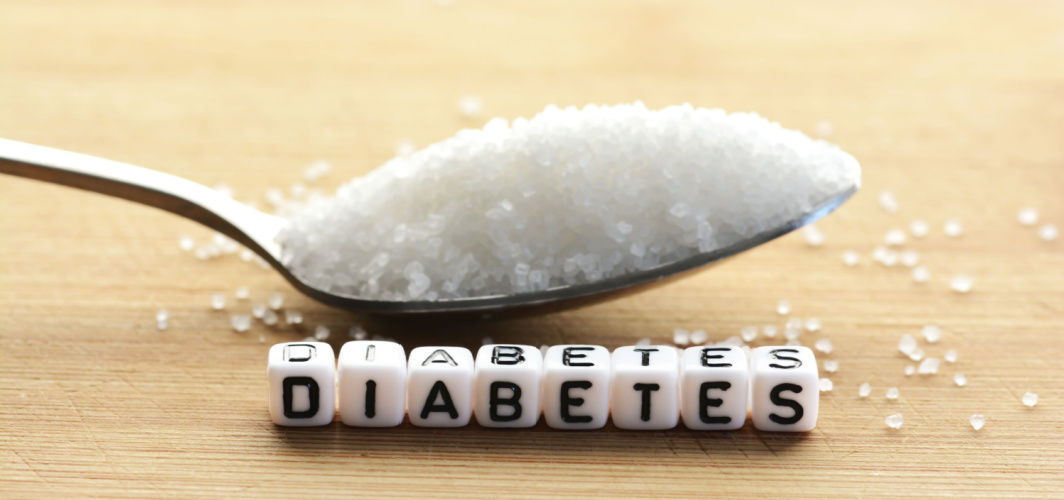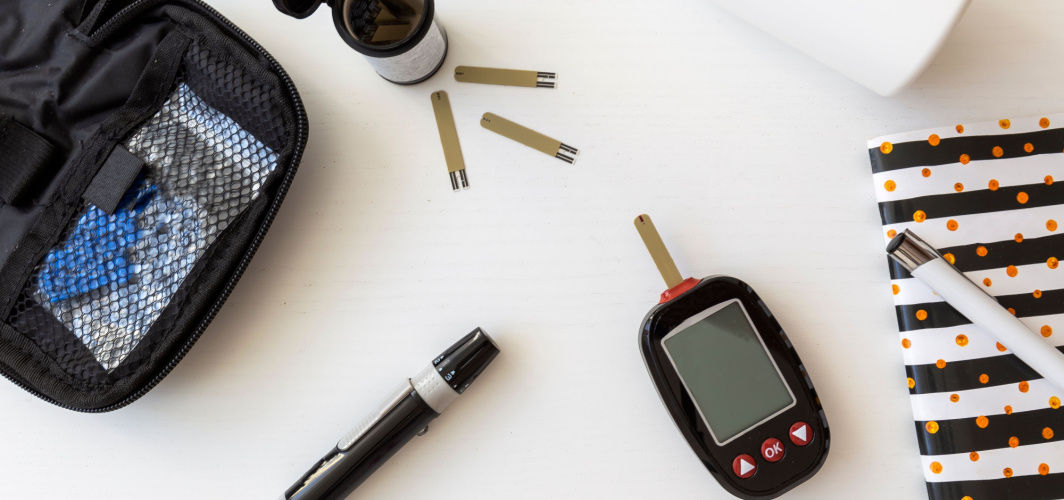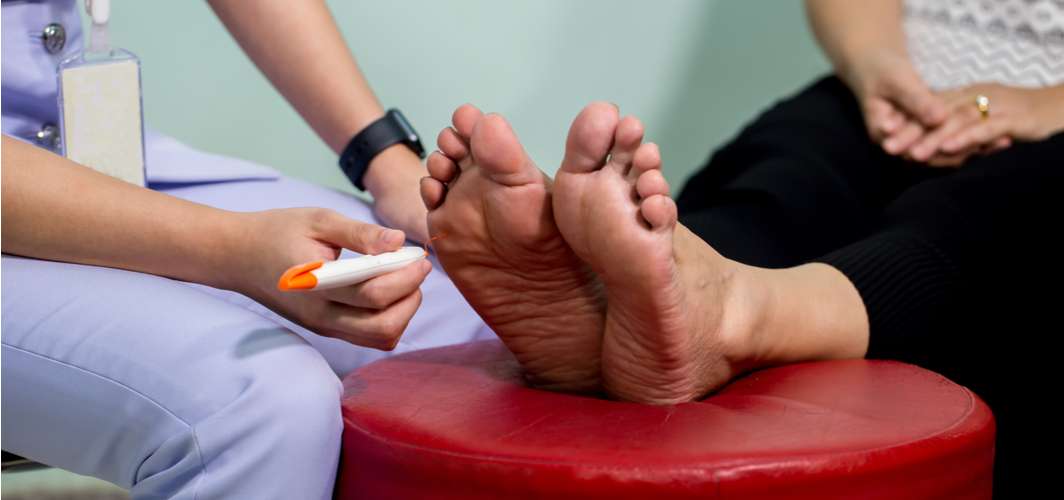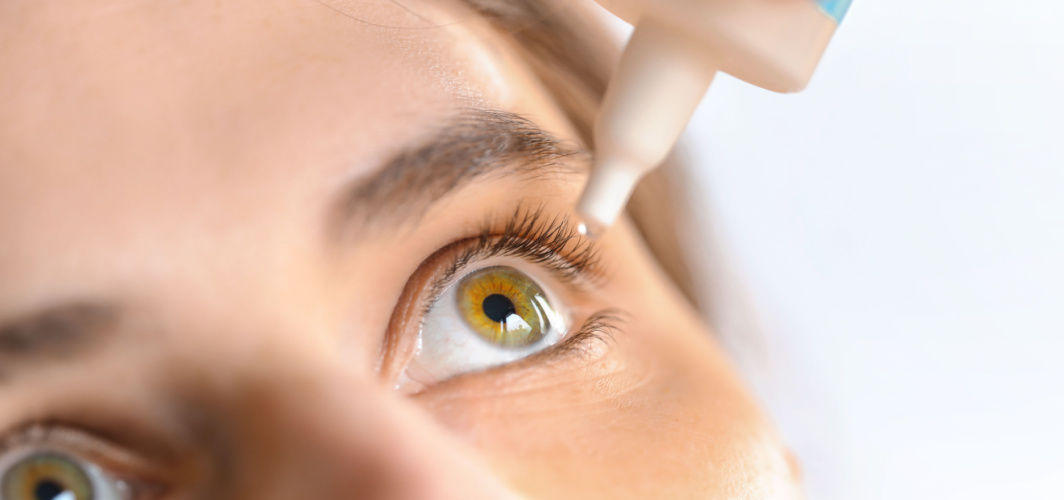Diabetes Management
Debunking 5 Common Myths About Diabetes
5 min read
By Apollo 24|7, Published on - 26 May 2023, Updated on - 31 October 2025
Share this article
0
21 likes

As India is deemed the 'diabetes capital of the world', it also homes various myths about the condition. In a world where information spreads like wildfire and is available at our fingertips, it is very easy to fall prey to rumours, beliefs, and myths. In this blog, we will dispel some myths surrounding this widely prevalent chronic lifestyle condition. You must be aware of the correct ways to manage it to avoid falling into the trap of misinformation.
Myth #1: If You Have No Family History of Diabetes, You Will Not Get Diabetes.
Fact: This is one of the popular myths about diabetes in India. Having a family history of diabetes indeed increases your risk of developing it. In fact, family history plays a role in the development of both type 1 and type 2 diabetes. However, many people develop diabetes even without having a family member who has the condition.
Besides genetics, lifestyle factors play a crucial role in the development of diabetes. Some of these factors include:
- Being overweight or obese
- PCOS
- Gestational diabetes
- Having prediabetes
- Being older than 45 years
You can reduce your risk for type 2 diabetes by maintaining a healthy weight, exercising regularly, and eating healthy.
Myth #2: You Will Develop Diabetes if You Are Overweight
Fact: Another confusing diabetes myth is that you will develop the condition if you are overweight. While increased weight and obesity are high-risk factors for diabetes, many people who are overweight or obese do not develop the condition.
At the same time, many people who are of normal or slightly higher weight develop diabetes. Since diabetes, especially type 2, is a multifactorial condition, several factors can be at play to cause it.
If you have one or more risk factors for diabetes, it is important to avoid or eliminate them early. This will reduce your risk of diabetes in the long run.
Myth #3: Eating a Lot of Sugar Causes Diabetes
Fact: This might come as a surprise, but simply eating sugar does not cause diabetes. However, you must still reduce your consumption of sweets and sugary beverages. Confusion about sugar consumption and diabetes mellitus arises because the food you eat gets converted into glucose (a type of sugar). Your pancreas produces a hormone called insulin which moves the glucose from the blood into the cells, where is it used for energy.
If you have diabetes, your body does not make enough insulin, or it is unable to use the insulin produced effectively. As a result, the extra glucose lies in your blood, increasing its levels.
So, if you have diabetes and consume sugary foods and beverages, besides causing weight gain, can also increase your risk for diabetes.
Myth #4: You Can Never Eat Sweets if You Have Diabetes
Fact: One of the common diabetes myths that is widely believed is that you need to bid goodbye to your favourite sweets if you have diabetes. Well, we’ve got good news for you. This is a myth! Though sweets are loaded with simple sugars that can spike your blood sugar levels, they are not out of bounds for people with diabetes.
All you need to do is plan out your meals in advance to avoid blood sugar spikes. You can also exercise portion control and balance your meal plate accordingly to include a sweet of your choice.
Myth #5: It Is Not Safe to Exercise with Diabetes
Fact: Contrary to this popular belief, regular exercise is rather recommended for people with diabetes. Exercising boosts your body’s sensitivity to insulin and helps lower your blood sugar levels. The ideal goal is to get at least 150 minutes of exercise per week or 30 minutes daily. You can include moderate-intensity aerobic exercises, such as brisk walking, jogging, swimming, and cycling. If you have diabetes, ask your doctor for the best exercises to help lower your blood sugar levels and maintain them in the normal range.
In a nutshell, these are just a few prevalent diabetes myths in India. You must remember that diabetes is not a verdict, but a manageable condition. However, you must be armed with the right information and professional support to do so. Let's break the chains of misinformation and pave the path towards a healthier, more enlightened world.
Consult Apollo’s Diabetologists
FAQs
If I have to take insulin for my diabetes, does it mean I am not managing my diabetes properly?
Using insulin to get your blood sugar levels under control can prevent your condition from getting aggravated. While most people with diabetes take oral medications, some may require insulin along with lifestyle modifications like meal planning and physical activity.
Are you more likely to get cold, flu, and other illnesses if you have diabetes?
If you have diabetes, you are more prone to colds and other chronic illnesses. For this reason, people with this condition are advised to get their yearly flu shots and keep their blood sugar levels under control.
Can you get diabetes from other people?
No, diabetes is not a communicable disease (does not spread).
Do you need to avoid carbs if you have diabetes?
There is no rule that people with diabetes must avoid carbs. In fact, the key to effective diabetes management is to eat a balanced diet that includes carbs, protein, and fat. However, portion control is advised.
Can you eat starchy foods if you have diabetes?
Yes, you can eat starchy foods if you have diabetes. However, remember to practice portion control since these foods can raise your blood sugar levels.
Medically reviewed by Dr Sonia Bhatt.
Diabetes Management
Leave Comment
Recommended for you

Diabetes Management
A Step-By-Step Guide To Using A Glucometer
Regular blood sugar monitoring is crucial for effective diabetes management. Glucometers, portable devices that measure blood glucose levels at home, offer convenience. To use a glucometer, start by gathering necessary supplies: soap or alcohol prep pads, test strips, a lancing device with a new lancet, and a notepad or smartphone app to record results. Follow these steps: clean your hands, turn on the glucometer, prick your fingertip, apply blood to the test strip, stop bleeding, and record the results.

Diabetes Management
Diabetic Foot: Can it be Prevented?
The development of diabetic foot can be prevented through various measures. Effective prevention includes regular foot care, such as daily inspection and cleaning, wearing comfortable and proper-fitting shoes, managing blood sugar levels, controlling blood pressure and cholesterol, maintaining a healthy lifestyle, avoiding smoking and alcohol consumption, and seeking immediate medical attention for any foot issues.

Diabetes Management
Diabetes and Dry Eyes: Is there a Connection?
Subscribe
Sign up for our free Health Library Daily Newsletter
Get doctor-approved health tips, news, and more.
Visual Stories

8 Fruits That are Incredibly Healthy for Diabetes
Tap to continue exploring
Recommended for you

Diabetes Management
A Step-By-Step Guide To Using A Glucometer
Regular blood sugar monitoring is crucial for effective diabetes management. Glucometers, portable devices that measure blood glucose levels at home, offer convenience. To use a glucometer, start by gathering necessary supplies: soap or alcohol prep pads, test strips, a lancing device with a new lancet, and a notepad or smartphone app to record results. Follow these steps: clean your hands, turn on the glucometer, prick your fingertip, apply blood to the test strip, stop bleeding, and record the results.

Diabetes Management
Diabetic Foot: Can it be Prevented?
The development of diabetic foot can be prevented through various measures. Effective prevention includes regular foot care, such as daily inspection and cleaning, wearing comfortable and proper-fitting shoes, managing blood sugar levels, controlling blood pressure and cholesterol, maintaining a healthy lifestyle, avoiding smoking and alcohol consumption, and seeking immediate medical attention for any foot issues.

Diabetes Management
